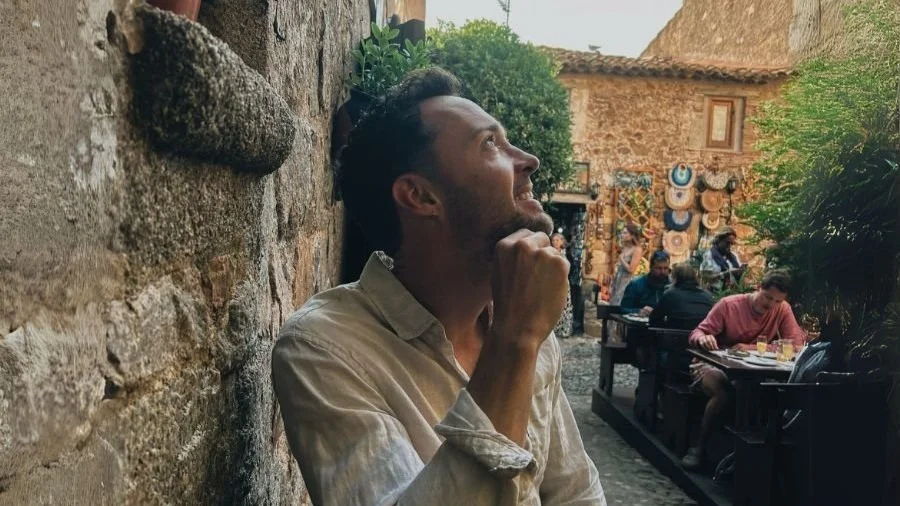Permanent Happiness. Is it possible?
And what does the Anterior Mid-Cingulate Cortex have to do with it?
Estimated reading time: 3 min 19 sec
When I was a teen, I read a book called ‘I Can Make You Happy’ by Paul McKenna (the TV hypnosis guy).
It didn’t work.
It didn’t make me happy.
Sorry Paul.
It probably contained lots of good advice.
But I couldn’t see it yet.
I still thought the world could make me happy.
It would take another 15 years, 12 holidays, 5 jobs, 3 cars, 2 girlfriends and 1 mother-of-all burnouts before I learned this.
So how does one attain happiness? And why is it so hard to find?
Well… whilst it’s true that “this too shall pass” (even the good feelings), it isn’t necessarily true that my relationship to those feelings (good or bad) has to change.
Challenged, for sure. But with time and practice, my focus over the years has shifted from striving to attain a certain internal state of “happiness” to how I relate to whatever emotional state I am experiencing in the moment.
Another way of approaching it might be to strive for a state of “permanent openness” to whatever presents itself. This gives you the opportunity to respond rather than resist – which is ultimately the only choice we ever have.
I am in no way perfect at this but I believe it is possible to maintain an inner sense of calm through all of life’s ups and downs with this approach. And in doing so, sustain a certain state of internal “happiness” even during challenging times.
What I find most fascinating about this shift is that I’ve noticed it’s possible to somewhat “feel good” even when a “negative” internal state is present. Cue exploding head emoji.
For example, if there is sadness in me, I will focus my attention on that feeling without resisting it, trying to change it or “going into” the associated victim mind story. Weirdly, it actually feels somewhat pleasurable to release the pain this way.
And in doing so, I find the associated mind activity slowly dissolves too allowing my body and mind to return to their natural state of wellbeing.
The Brain Region That REALLY Makes You Happy
Whether it’s completing a tough workout, having a difficult conversation with someone or just feeling one’s pain, by doing the hard thing now, I have learnt that I’ll ALWAYS feel better afterwards. And once fully realised, this somehow makes doing the hard thing infinitely less stressful and often somewhat enjoyable.
This has recently been studied by scientists. Believe it or not, there is actually a region of the brain called the Anterior Mid-Cingulate Cortex which performs the cost/benefit computations necessary for tenacity. And unbelievably, this region can grow in size the more you do challenging things. Over time, this makes it easier to approach and complete future challenges.
The ability to identify hard things and bring awareness/intention to them is ultimately what defines a person’s happiness in this world. It also seems to correlate greatly with their external success too.
I see this day in, day out with my personal training and cold water therapy clients. The ones that are able to witness the discomfort and move through it by connecting with how good they’ll feel afterwards are not only the ones that make more progress physically but also seem happier in their day-to-day lives.
The Main Benefit Of Cold Water Therapy
One of the most enjoyable aspects of my Cold Water Therapy Workshops is seeing people practice this phenomenon in a very physical way. Because it’s all the same. Just like completing a tough workout, stepping into a bath of ice-cold water is both hard and anxiety-inducing. It challenges people’s fear of the unknown and pre-conditioned beliefs about the cold like nothing else.
And watching the 99.9% of the people who attend my workshops complete 2 minutes in the ice with grace and calm is a blessing to witness. Not just because of how good they feel afterwards, but also the knowing that they must also contain the capacity to lean into discomfort (emotional pain, fear-based mind activity) for their own greater good in the future.
Ultimately, people think that cold water therapy workshops are about how to benefit from the cold but they are really about how to overcome fear and discomfort and improve ones ability to face life’s challenges.
So there you have it. My take on permanent happiness. I believe it is possible but it might not be what you think. Let go of any concept around it and the feeling of happiness might just find you more often than you expect.




